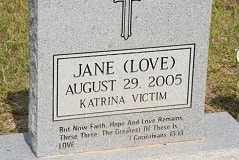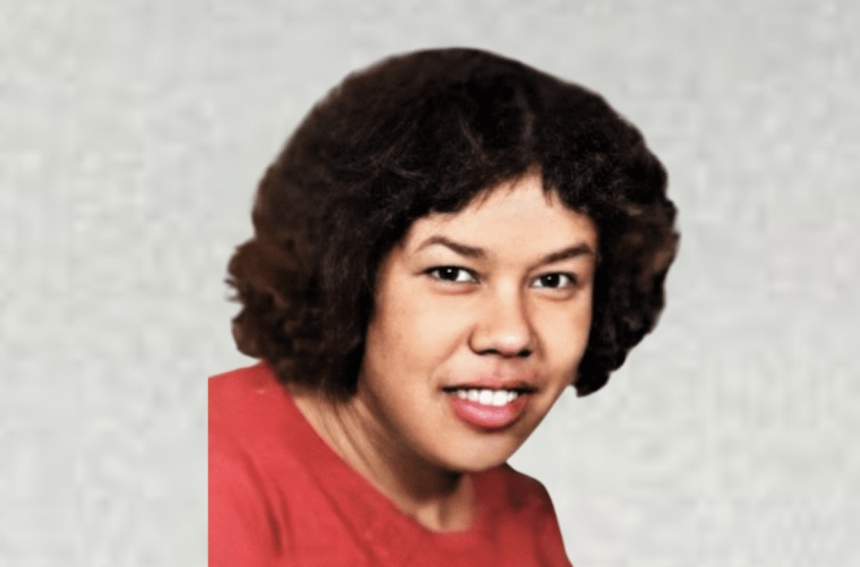About a week after Hurricane Katrina devastated the Mississippi Gulf Coast, in 2005, a search and rescue team discovered the remains of an unidentified individual between two slabs where homes once stood in St. Martin.
Despite extensive efforts by law enforcement to identify the woman, all they could determine was that she was a Black female, estimated to be between 50 and 59 years old, and once standing between 5’1” and 5’5”. That information wasn’t enough for anyone to come forward with a name – especially considering the Category 5 hurricane had just killed over 230 people in Mississippi alone – and the unidentified victim was buried at Machpelah Cemetery in Pascagoula with a headstone reading, “Jane (Love).”


Details were entered into the National Missing and Unidentified Persons System, and for nearly two decades, the case went cold – until Othram came in. The Mississippi Bureau of Investigation (MBI) and the Mississippi State Medical Examiner’s Office exhumed the woman’s remains and called on the Texas-based genetic genealogy company to step in held identify her.
After successfully completing the process, the team at Othram provided critical profile information that gave new leads to the MBI. Using these new leads, in May 2024, a family member of the deceased was located, and the Katrina victim was positively identified as Tonette Waltman Jackson. According to relatives, Tonette and her husband, Hardy, were forced into their attic when flood waters began to rise in Biloxi. Their home was split in half, and both Tonette and Hardy were swept away by the flood. While Hardy was able to grab onto a tree with one arm, he could not hold on to Tonette any longer with the other and before she was taken by the waters, she asked Hardy to let her go and instead take care of their children and grandchildren once he makes it to safety. That was a promise Hardy kept until he died in 2013.
The identification of Tonette Waltman Jackson represents the 27th case in the state of Mississippi where officials have publicly identified an individual using technology developed by Othram. Funding for the effort to identify Jackson was provided by Mississippi native and philanthropist Carla Davis, who is committed to resolving the backlog of cold cases in the state.







